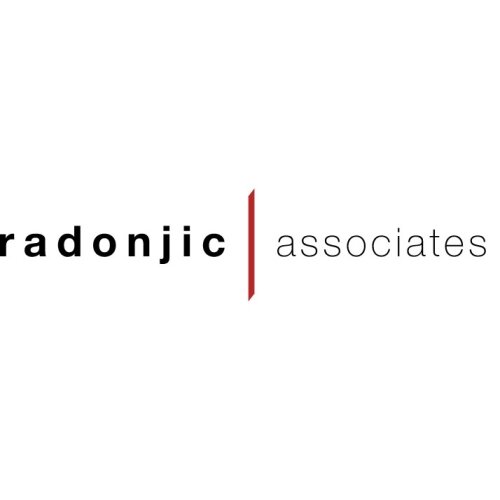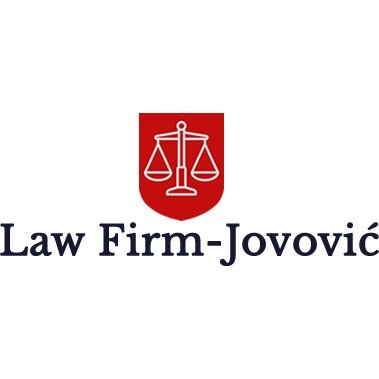Best Renewable & Alternative Energy Lawyers in Montenegro
Share your needs with us, get contacted by law firms.
Free. Takes 2 min.
Or refine your search by selecting a city:
List of the best lawyers in Montenegro
About Renewable & Alternative Energy Law in Montenegro
Montenegro is increasingly focused on growing its renewable and alternative energy capacity as part of its commitment to sustainability and meeting European Union goals. The country’s diverse geography, which includes mountains, rivers, and a coastline, provides significant potential for hydroelectric power, solar energy, wind energy, and biomass. The legal framework in Montenegro seeks to encourage investment in these sectors while ensuring the protection of the environment and alignment with international standards. Businesses, investors, and individuals interested in the renewable energy sector must navigate evolving regulations that govern project development, grid integration, incentives, and environmental safeguards.
Why You May Need a Lawyer
Legal challenges are common in the renewable and alternative energy sector due to the complex interplay between technical, environmental, and regulatory factors. You may require a lawyer if you are:
- Seeking permits and licenses for renewable energy projects
- Negotiating land use agreements or power purchase contracts
- Applying for government incentives or subsidies
- Addressing disputes with authorities or project partners
- Dealing with cross-border energy issues, especially if you are an international investor
- Ensuring compliance with environmental and construction regulations
- Acquiring or merging with energy companies
- Protecting intellectual property, such as proprietary energy technology
Legal support ensures projects are structured properly, risks are managed, and all stakeholders’ interests are protected throughout the project lifecycle.
Local Laws Overview
The key laws governing renewable and alternative energy in Montenegro include the Energy Law, the Law on Energy Efficiency, and various bylaws issued by regulatory authorities. Important aspects include:
- Licensing and Permitting: Renewable energy projects require several permits, ranging from construction and environmental approvals to operation licenses, issued by national and local authorities.
- Incentives and Tariffs: Montenegro provides incentives for certain types of renewable energy projects, such as feed-in tariffs, guaranteed prices for electricity, and grid access priority for green energy producers.
- Grid Access: Rules exist for connecting renewable energy generators to the national grid. These rules prioritize renewables but require compliance with technical standards.
- Environmental Protection: Projects must adhere to laws for environmental impact assessments, biodiversity protection, and sustainable land use, reflecting EU-aligned standards.
- Foreign Investment: The legal framework supports foreign investment, but foreign investors must comply with company law, tax law, and sector-specific energy provisions.
Staying compliant with these local requirements maximizes project viability and reduces legal and financial risks.
Frequently Asked Questions
What types of renewable energy are developed in Montenegro?
Montenegro primarily develops hydropower, followed by increasing projects in wind, solar, and biomass energy.
Are there government incentives for renewable energy investors?
Yes, the government offers incentives such as feed-in tariffs and grid access priority to encourage renewable energy investment.
What permits are required to build a renewable energy project?
Projects typically require construction permits, environmental impact assessments, and operating licenses, which must be obtained from national and local authorities.
Can foreign companies invest in Montenegro’s renewable energy sector?
Yes, foreign investment is welcomed, but investors must adhere to local legal, environmental, and tax regulations.
What is a feed-in tariff?
A feed-in tariff is a government policy ensuring renewable energy producers receive a guaranteed, fixed price for the electricity they supply to the grid for a set period.
How long does the permitting process take?
The timeframe varies based on the project type and location, but it often takes several months to over a year for complex projects due to environmental and construction approvals.
What environmental regulations must be followed?
Projects must comply with environmental impact assessments, protection of natural habitats, and sustainable resource use requirements.
How does grid connection work for renewable energy?
Producers submit applications to the national transmission operator, and if approved, they sign connection agreements and adhere to technical standards for grid integration.
Are there restrictions on land use for energy projects?
Yes, renewable energy developments are subject to zoning, land use plans, and environmental constraints which must be navigated with the help of local authorities.
How can a lawyer help with renewable energy projects?
A lawyer can assist with regulatory compliance, contract drafting, permit applications, negotiations, and dispute resolution, ensuring legal security throughout the project.
Additional Resources
Several organizations and governmental bodies provide information, regulatory guidelines, and support for renewable energy projects in Montenegro, including:
- Ministry of Capital Investments - Energy Directorate
- Montenegrin Energy Regulatory Agency (REGAGEN)
- Montenegrin Electricity Transmission System (CGES)
- Environmental Protection Agency of Montenegro
- Chamber of Economy of Montenegro - Renewable Energy Section
- International development agencies and local NGOs working on energy sustainability
These bodies offer guidance on policy updates, application procedures, potential funding opportunities, and regulatory compliance.
Next Steps
If you are considering investing in or starting a renewable or alternative energy project in Montenegro, consider taking the following steps:
- Define your project goals and assess the resource availability and site location.
- Research applicable laws and regulations related to your project type and location.
- Contact local authorities or energy agencies for initial guidance.
- Consult an experienced lawyer specializing in energy law in Montenegro to help you navigate the permit process, secure financing, and ensure regulatory compliance.
- Prepare all required documentation for permits and compliance reporting.
- Engage technical and environmental experts as needed to support your application and project planning.
- Regularly monitor changes in Montenegrin energy legislation to ensure ongoing compliance and take advantage of new incentives or opportunities.
The renewable and alternative energy sector in Montenegro offers promising opportunities. Taking the right legal steps early on helps ensure project success and long-term sustainability.
Lawzana helps you find the best lawyers and law firms in Montenegro through a curated and pre-screened list of qualified legal professionals. Our platform offers rankings and detailed profiles of attorneys and law firms, allowing you to compare based on practice areas, including Renewable & Alternative Energy, experience, and client feedback.
Each profile includes a description of the firm's areas of practice, client reviews, team members and partners, year of establishment, spoken languages, office locations, contact information, social media presence, and any published articles or resources. Most firms on our platform speak English and are experienced in both local and international legal matters.
Get a quote from top-rated law firms in Montenegro — quickly, securely, and without unnecessary hassle.
Disclaimer:
The information provided on this page is for general informational purposes only and does not constitute legal advice. While we strive to ensure the accuracy and relevance of the content, legal information may change over time, and interpretations of the law can vary. You should always consult with a qualified legal professional for advice specific to your situation.
We disclaim all liability for actions taken or not taken based on the content of this page. If you believe any information is incorrect or outdated, please contact us, and we will review and update it where appropriate.
Browse renewable & alternative energy law firms by city in Montenegro
Refine your search by selecting a city.















